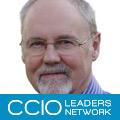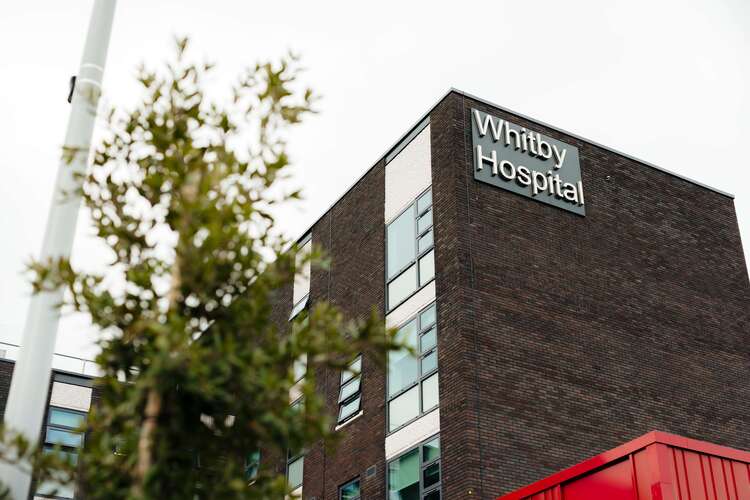Enter the CCG
- 26 June 2013

In the latest new world of the NHS, GP practices run clinical commissioning groups and CCGs consist of their practices. The concerns of the one are the concerns of the other.
However, quite independently of these changes, general practice is about to enter a year of unprecedented pressure.
Practices will have increased demands upon their time, coupled with less remuneration (and, therefore, reduced ability to buy in the services of other clinicians).
Burnout looms ominously on the horizon. A significant number of GPs are planning to retire early, while reduced numbers are entering vocational training courses. And now, just to add to the stress, there are calls for GPs to take over out-of-hours care…
This could easily become a vicious circle in which the whole of primary care becomes unstable and collapses. What can informaticians do to help?
Looking for efficiency
With declining numbers of GPs working with reduced resources in the face of a rising workload there is only one thing that can be done to contain the situation – and that is to work more efficiently.
This means discarding inessential work, the efficient delegation of clinical duties, demand management, and better-quality risk management of chronic illness.
But there’s another way to improve efficiency – one that seems so insignificant that hardly anyone gives it a moment’s thought. And that’s fine-tuning existing systems to make them ultra-quick.
At the heart of this idea is a simple mantra: even the smallest saving of time or effort can bring vast rewards if that activity is repeated many times a day.
Consider the electronic call-in board in the waiting room. In my practice, when we wanted to see the next patient, we used to buzz the receptionist, who would call-in the next person on the list.
Except it wasn’t as simple as that. The receptionist was probably engaged in something else, and by the time she had disentangled herself, worked out which clinician was ready for a patient, found the next patient, and called them in, another 20 seconds had gone by.
By summoning the patient immediately, the call-in board takes out that delay. Saving 20 seconds doesn’t sound much, does it?
Now do the maths. With18 patients in each surgery, that’s six minutes saved – per surgery! With nine surgeries a week, that’s 54 minutes saved – per clinician!
Simply installing a call-in board saves an hour a week for every single clinician in our practice. That’s a lot of time.
And that’s only the beginning. Many computer activities are repeated very frequently during the day: inputting blood pressuresand peak flows, standard recording of medical examinations, renewing prescriptions… the list is almost endless.
By using shortcuts and macros – either built into the primary care application, or from third party programs such as Macro Express – practices can speed up these processes enormously.
For example, I can write down a fully documented examination in free text using just six macro clicks – and then I go back and alter the free text wherever appropriate. Using macros saves me hours each week.
Shaving time
I call this principle ‘shaving time’ (imagine Sean Connery saying it, and you’ll get the point). By shaving small amounts off the time taken to do common activities it is possible to save large quantities of time overall.
It’s a remarkably powerful principle, leading to greater efficiency, higher levels of accuracy, and greatly reduced stress. It also applies to everyone, not just clinicians.
And this is where ‘the CCG is the practices, and the practices are the CCG’ becomes so powerful: help the constituent practices become more efficient and you help the CCG itself.
An efficient practice has room to take on more work, which in turn frees up time, money and resources for use elsewhere, reducing the overall pressure on the CCG. We all benefit, especially our patients.
Our CCG has already begun‘shaving time’. I’ve previously mentioned our project to make emailing more efficient: that alone could save 5% of the working day.
The next project is a manual about using Outlook more efficiently: to organise meetings, arrange task lists, and so on, and so forth (NHS administrators know how to do this, but most practices don’t).
What else ‘shaves time’? Try a voice processor: it’s much quicker than typing. Alternatively, learn touch-typing: it took me just three weeks, using the proprietary program ‘Mavis Beacon’.
Spend time setting up your computer properly: this will repay itself handsomelyin the months to come. Add your usual programs to the Startup folder of your workstation so they load automatically every time you switch on.
And fine-tune your templates and reports to avoid having to waste time customising and tidying up the documents they produce.
Control incoming information
Controlling the flow of information itself can save large amounts of time and stress. Practices receive copious quantities of official notices each week: from the chief medical officer, from the medicines agencies, from the CCG, and so on.
Unfortunately, we often receive each message several times over — as a direct letter, then as a cascaded fax, with a copy by email — all of which is then re-forwarded by a variety of intermediaries within the NHS – all of them anxious to make sure that they have faithfully passed on every important message.
It’s not unusual for a clinician to receive each missive five times over: hugely time-consuming and frustrating.
What if we could arrange for the CCG to become the sole portal for all these messages – with the final common pathway being our extranet?
As the system already knows each extranet member’s role (nurse, GP, practice manager…) we could arrange for these notices to be targeted more precisely. Every worker would receive just a single copy of those communiqués that were professionally relevant to them.
If these messages were also stored centrally, any extranet member could look up a specific document at any time, avoiding the need to set up and maintain a local practice repository.
At a stroke, we would target official messages more accurately, reduce duplication, and make them easily available for future reference.
Lots of time saved; lots of stress removed; and an increased ability to refer to information in the future – exactly what busy healthcare workers need.


Dr John Lockley
Dr John Lockley is clinical lead for informatics at Bedfordshire Clinical Commissioning Group and a part-time GP.




